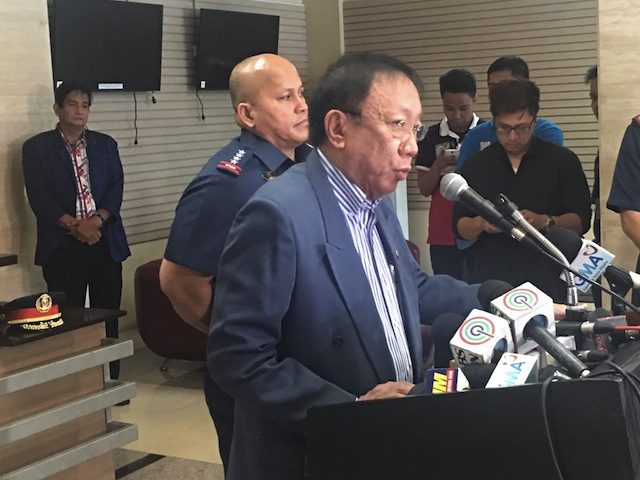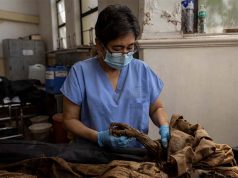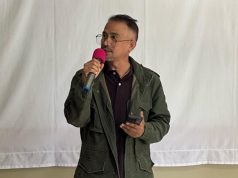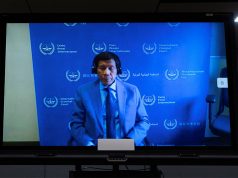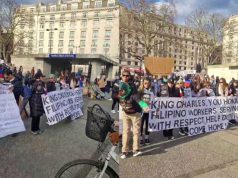MANILA – The petitions assailing the war on drugs are part of efforts to destabilize the Duterte Administration and should be thrown out because granting their prayer will cause lawlessness and constitute interference by the judiciary in the mandate of the Executive, Solicitor General Jose Calida warned the Supreme Court Tuesday.
The “destabilization” angle was part of the defense made by Calida in oral arguments before the SC en banc hearing petitions filed on behalf of two communities seeking to be free from police operations that they alleged had resulted in extrajudicial killings of suspects and innocent civilians.
“Certainly, there is no lawful basis for the court to prohibit the respondents from implementing and enforcing the orders of the President,” Calida told the justices, referring to Oplan Tokhang of the Philippine National Police.
“There is no legal authority for the court to order ‘police-free zones.’ What the petitioners therefore want is a country mired in drug addiction, where lawlessness and anarchy hold sway,” added Calida.
He said it is “not difficult to see that the present petitions are disingenuous moves to destabilize the Duterte administration and sow anarchy,” remarks that did not sit well with some justices.
Leonen warns Calida
Associate Justice Marvic Leonen warned him, “you have to be careful in labelling them [critics] as destabilizers,” adding that “I am a bit disturbed that the solicitor general, the tribune of the people, calls the petition as part of the destabilization effort.”
PNP chief Director General Ronald “Bato” dela Rosa and PDEA Director General Aaron Aquino attended the hearing, a follow-up to last week’s session in court.
In the last hearing, the petitioners assailed the PNP’s Memorandum Circular on Oplan Tokhang and Memorandum Circular 112 of the Department of Interior and Local Government, saying these had provisions that amounted to virtual orders to kill drug suspects.
Justice Leonen asked dela Rosa to respond to this at Tuesday’s hearing.
Leonen asked the PNP chief: “have you issued a kill order?” to which dela Rosa replied, “Never, your honor.”
Leonen asked, “did you kill when you say neutralize?” and the PNP chief replied, “it [the word neutralize] means arrest, ask them to surrender and killing the suspect as a result of the gunfight.”
Justice Leonen pressed on, “what are you saying? You are not ordering them to kill drug addicts, users, importers and manufacturers?”
Dela Rosa replied, “No, your honor.”
‘Harassment’ plain and simple – Calida
Calida, for his part called the petitions as sheer forms of “harassment” against authorities in order to pressure them to stop doing their tasks to get rid of drug syndicates.
The solicitor general warned that if the SC grants the petitioners’ plea, it could trigger a constitutional crisis, and would constitute infringement by the court on the prerogatives of the Executive.
Calida also warned that the country’s security and law and order would be disrupted.
“Plainly,” summed up Calida, “the petitions intend to:
1) drive a wedge between the President on the one hand, and the PNP and DILG on the other, inciting disobedience to the Chief Executive and depriving him of his powers and prerogatives; and
2) emasculate the government’s police powers by rendering inutile the PNP’s sworn mandate to enforce the law and maintain the peace and order.”
According to Calida, the petitioners have no legal standing as they are not the ones who lost relatives in the drug war; neither are they residents of the places seeking to be placed under writ of amparo or protection order from the court.
Petitioners had sought the writ of amparo to protect the relatives of victims of Oplan Tokhang San Andres Bukid in Manila.
Calida pointed out that by and large, the people and barangay officials support Oplan Tokhang.
Both Oplan Tokhang and DILG’s memorandum circular 112 – encouraging villages to set up drop boxes for residents to send authorities the names of suspects engaged in illegal drugs – have a constitutional basis.
They do not infringe human rights, Calida said.
To prove the huge public support for the war on drugs, he cited the results of Pulse Asia’s survey covering Sept. 24-30, showing 88 percent of Filipinos nationwide, and 84 percent in Metro Manila, support the war on drugs.
“Certainly, there is no lawful basis for the court to prohibit the respondents from implementing and enforcing the orders of the President. There is no legal authority for the court to order ‘police-free zones.’ what the petitioners therefore want is a country mired in drug addiction, where lawlessness and anarchy hold sway,” Calida stressed.

